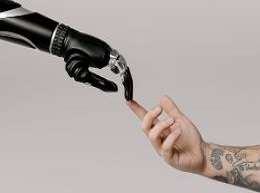Can AI overtake humans ?

The question of whether AI can overtake humans is a complex and debated topic. AI has made significant advancements in recent years, demonstrating impressive capabilities in various domains. However, it is important to distinguish between different types of AI and their potential impact:
1. Narrow AI: Current AI systems, also known as narrow or weak AI, are designed for specific tasks and lack general intelligence. While they can outperform humans in specialized areas such as image recognition or playing chess, they are limited to the specific tasks they are trained for.
2. General AI: General AI, also referred to as strong AI or AGI (Artificial General Intelligence), would possess human-like cognitive capabilities and the ability to understand, learn, and apply knowledge across various domains. Achieving true general AI that surpasses human intelligence in all aspects remains a significant challenge, and experts have varying opinions on when or if it will be achieved.
It is worth noting that even if general AI is developed in the future, the impact it has on humanity would depend on how it is designed, governed, and utilized. Societal, ethical, and regulatory considerations would play a crucial role in determining the relationship between AI and humans.
While AI has the potential to automate certain tasks and contribute to efficiency gains, it is unlikely to completely replace humans in all aspects. Human intelligence encompasses a wide range of skills, including creativity, empathy, complex problem-solving, and social interactions, which are not easily replicated by AI.
It is more plausible to envision a future where AI and humans collaborate and augment each other's capabilities, leveraging the strengths of both. AI can assist humans in complex decision-making, enhance productivity, and contribute to solving grand challenges, while humans can provide critical thinking, emotional intelligence, and ethical judgment.
Overall, the potential impact of AI on human capabilities and society is still evolving, and the trajectory will depend on various factors, including technological advancements, policy decisions, and societal choices.